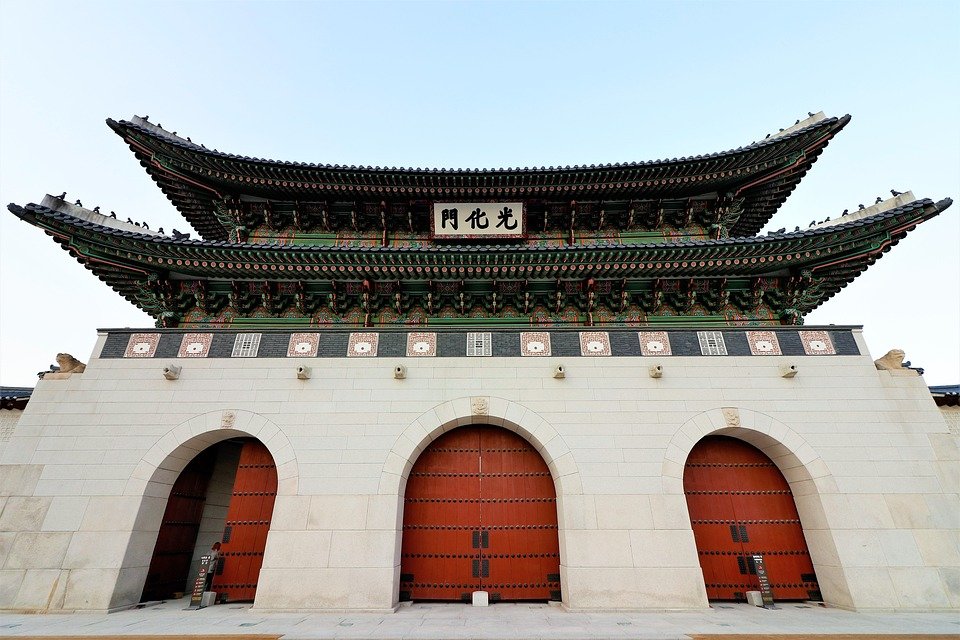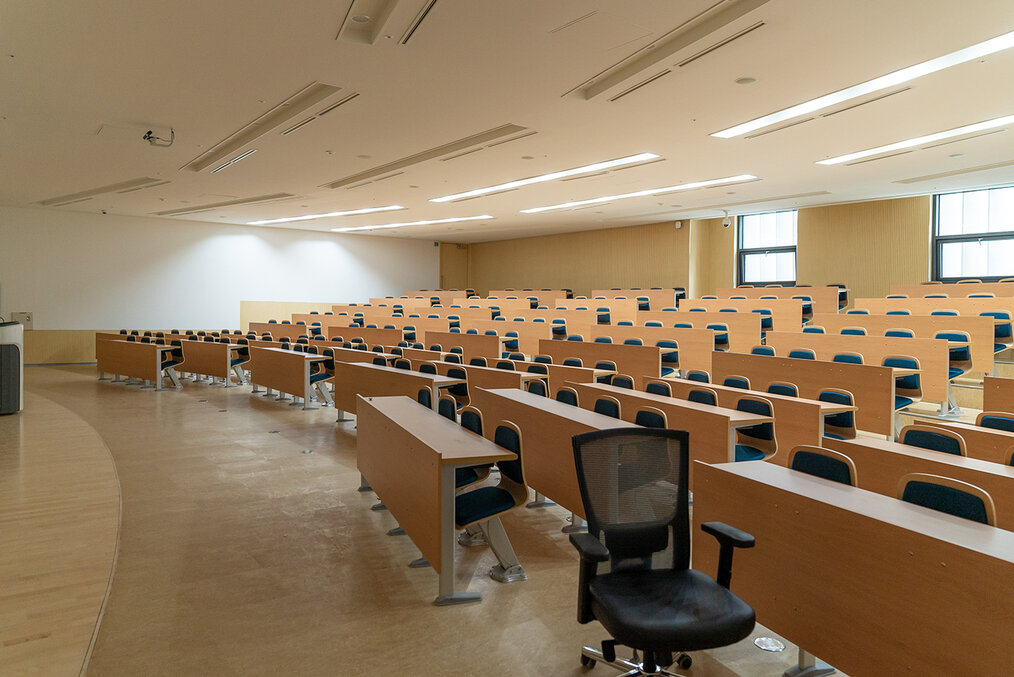What Salary Will You Earn Teaching English in South Korea?
Learn the various ways you can teach English in South Korea and how much to expect to make based on the type of employer.
Key Takeaways 🔑
- There are various types of English teaching jobs in South Korea
- Pubic schools will be the most consistent but have a set salary scale
- Hagwons are private academies where you can teach students after school or professionals
- Universities pay the most but jobs are exclusive
- International schools typically have all English speaking classes and provide teachers with access to expat communities
- Private tutoring is a great way to earn a little extra cash on the side, but only if its legal under your visa

South Korea is one of the most popular choices for teaching English abroad. Located in the heart of Asia, this vibrant country offers teachers the unique opportunity to immerse themselves in a wonderful culture while making meaningful connections with students.
If you are considering teaching abroad in South Korea, one of the first questions you’ll likely have is what salary you can expect to make overseas. After all, while living abroad, you’ll need to make sure you have enough funds to cover your basic costs of living. To help you plan, budget, and prepare for your time teaching in South Korea, we've created this detailed breakdown of salary expectations for teaching abroad in South Korea.
Note: Salaries are based on averages for teachers starting in the summer of 2022 and are subject to change. All cost of living data is sourced from Numbeo. Denominations are in USD throughout.
How much can you make teaching English in South Korea?

Like most teach abroad destinations, how much you can expect to make as an English teacher in South Korea will be dependent on several factors, including the city you teach in and the type of institution where you teach. The official currency in the country is the South Korean Won (KRW).
Teaching salaries in Korea are among the highest in the world, where teachers can earn between $20,400 and $52,800 per year ($1,350 - 4,400 per month). With these relatively high salaries, South Korea is a great destination for those who want to teach English, gain an immersive experience abroad, and build savings.
Salaries and the exchange rate vary year to year, but supply and demand dynamics will continue to place a high value on English teaching jobs in South Korea. In addition to a base salary, most contracts will also come with benefits which often include flights, housing, and even severance pay (roughly one month’s salary).
In South Korea, there are five main types of ways to teach abroad. These include public schools, hagwons (private academies), universities, international schools, and private tutoring. The salary you make will depend on which route you take, so read on for a breakdown of each.
Note: The exchange rate, as of 2022, is approximately 1,250 KRW per 1 USD.
Public schools

Average salary: $1,200 - 2,450 per month
The South Korean government offers a select number of placements to international English teachers each year. As a public school teacher, you are a government employee. As such, your rate of pay is determined by an established scale. The government adjusts pay rates according to demand, usually yearly, although it doesn't vary significantly.
The general pay rate for a public school job ranges from $1,200 to $2,450 (1.5 to 3 million KRW). Your potential earning power also varies based on your experience and employment location. Many schools will offer overtime opportunities, which pay around $16 (20,000 KRW) per teaching hour. Here are a few popular, public programs to place teachers with schools:
- The average teacher salary with the EPIK (English Program in Korea) program is $1,450 - 2,180 (1.8 - 2.7 million KRW). The EPIK program places teachers all over Korea, with the exception of Seoul and Gyeonggi province, making EPIK the largest employer for English teachers in Korea. Historically, EPIK is slightly less competitive than the other programs. Teachers in designated rural areas or who teach in multiple schools receive a monthly bonus.
- The average teacher salary with the GEPIK (Gyeonggi English Program in Korea) program is $1,600 - 2,000 (2 - 2.5 million KRW). Gyeonggi province surrounds Seoul and is very much an urban location. Most GEPIK teachers will find themselves within an easy commute of Seoul, and some will even be in pretty major satellite cities like Suwon.
- The average teacher salary with the SMOE (Seoul Metropolitan Office of Education) program is $1,600 - 2,400 (2 - 3 million KRW). SMOE is the holy grail for city-loving English teachers. The cost of living in Seoul is higher than in other parts of the country, and this is reflected in the salary. Technically, the entry salary for SMOE starts at $1,450 (1.8 million KRW), but the program prefers not to hire at this level.
Benefits of teaching at a public school
Public employees benefit from reliability and consistency since their employer is funded by the government. Since the pay scale is predetermined, you won't need to partake in any awkward negotiations. Teaching at a public school can also be a gratifying experience, as you're making an impact on the lives of your students and helping them develop an important skill.
Hagwons

Average salary: $1,500 - 1,900 per month
Hagwons are private academies that cater to after-school students. Unlike public school programs, the government has no hand in employment decisions, and it may be easier to find a position from within the country. Pay is not determined on a national scale but according to the hagwon owner based on negotiations, experience, and qualifications. This generally ranges between $1,500 to $1,900 per month (1.9 - 2.3 million KRW).
A beginning teacher may find that the starting salary is higher at a hagwon than in the public school system, but for the experienced teacher, the difference is not so clear. When teaching at a Hagwon, you may be teaching primary students after-school, kindergarteners, or even hosting adult/professional education classes.
Benefits of teaching at a Hagwon
Hagwons will typically have more flexible work hours than public schools or universities, although expect to have fewer holidays than publicly employed teachers. Additionally, students at Hagwons can vary widely in age but generally will be motivated and, since they're paying for the education, incentivized to learn.
Universities

Average salary: $1,800 - 2,800 per month
In South Korea, continued education is highly valued, with more than 400 universities in the country, many of which offer English classes taught by native speakers. University jobs are coveted in Korea because they offer independence, minimal teaching hours, mature students, and the possibility of four months’ vacation.
Reported pay rates for teaching jobs at universities in South Korea fluctuate but tend to hover between $1,800 to $2,800 (2.3 and 3.5 million KRW) per month. The rate you expect to receive will be entirely dependent on the university you teach at and your previous teaching experience.
Benefits of teaching at a university
Students at the university level will likely have a foundation of English skills and will be motivated to improve. The level of teaching will obviously be higher, making it an excellent fit for teachers with no familiarity with the Korean language.
International Schools

Average salary: $1,450 -2,250 per month
As is the case in many countries throughout Asia, South Korea is home to several international schools that cater to the children of diplomats or expats. These children may move quite frequently, and international schools provide a modicum of stability. To such end, most classes at these types of schools are taught in English -- meaning, if you'd prefer to teach a subject other than the English language, that option is there.
Although these jobs sound ideal for many English teachers, the availability of jobs tends to be low, and the pay is not much different from the other options. English teachers at international schools make a monthly salary between $1,450 and $2,250 (1.8 - 2.8 million KRW).
Benefits of teaching at an international school
International schools will provide you access to an expat community. The curriculum will also likely be more familiar to you, and teachers will have more options of subjects to teach besides English. Additionally, international schools may pay partially in won and partially in an international currency like the US dollar. If you're building savings, it may be helpful not to have to convert the currency when you decide to leave Korea.
Private tutoring

Average salary: $800 - 1,600 per month
Private tutoring is a popular way for teachers abroad to earn additional income. In South Korea, you can earn an additional $800 to $1,600 (1-2 million KRW) for tutoring, depending on the number of hours you work. However, private tutoring is illegal if you’re in South Korea on an E-2 visa. Your visa is granted on the basis that you will work for one specific employer for the duration of your time in Korea.
That doesn’t mean it doesn’t happen; many teachers do it under the table to earn extra won, but if you’re caught, it can be a quick way to lose your job, get slapped with a hefty fine, and be kicked out of the country. People in Korea on certain F visas (residential visa) may not face the same restrictions. Always check the rules of your visa before accepting a private tutoring gig. Yes, it can earn you an extra bit of spending money each month, but it's not worth breaking the law.
Benefits of private tutoring
For those with visas that permit tutoring, this is a convenient way to earn extra money on your own terms. You will be able to connect with a much smaller group of students and provide a more substantial impact on their learning.
Recommended Programs
How much does it cost to live in South Korea?

When evaluating your earning potential as an English teacher in South Korea, it's crucial to consider the cost of living and exchange rate to properly compare to what you can earn in your own country. To give you an idea of how much you'll spend compared to your salary, here's what you can expect to pay in Korea for certain important necessities, according to Numbeo:
- Average monthly rent for a 1-bedroom apartment: $325 in rural areas and $482 in city centers (if your school doesn’t provide housing, they usually provide a monthly stipend)
- Internet: $22 per month
- Dining out: Between $4.85 - 12.12 per person for a meal at a standard restaurant
- Domestic beer at a bar: $3.23
- Public transportation: $44.45 for a monthly pass or $1.05 per one-way ticket
In total: Expect to spend around $960 in living expenses per month (excluding rent)
Is teaching English in South Korea right for you?

Teachers in South Korea can expect to earn a good living and even build savings. In fact, many English teachers return from working in Korea free of student or credit card debt, with modest savings and plenty of extra stamps in their passport.
Beyond the financial benefits, teaching English in Korea is a fantastic opportunity for a culturally immersive experience that will push you to grow. You will expand your global professional network, make new friends, provide a valuable and rewarding service, and refine your teaching skills.






